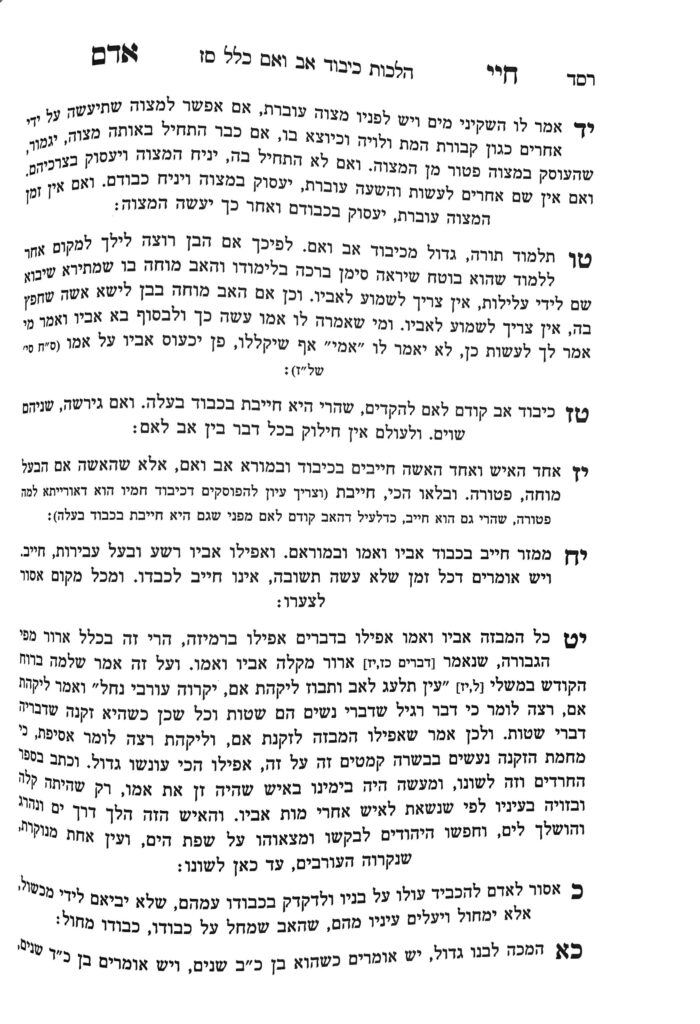We are beginning siman 16, which discusses conflict between kibud av and kibud eim. Generally, we consider kibud av and kibud eim as equal, as the Torah equates them. Regarding kibud, it says kabeid es avicha v’es imecha, and regarding yirah, it says ish imo v’aviv tira’u. Chazal explain that the mother is written first regarding yirah, and the father is written first regarding kavod, to teach us that a child’s chiyuvim towards them are the same, even though it is the nature of a child to be more lax regarding yirah towards their mother and kavod towards their father.
The only exception to this halacha is when there is a conflict between the parents themselves. The Gemara gives the example of both parents asking for a drink, in which the child must determine whom they should first serve. The Gemara teaches us that in such a case, and in any case where there is a question of who will come first, the father takes precedence, because “the mother also has some level of responsibility towards the kavod of the father” (Kiddushin 30b). If they are divorced, there is no difference between the two, because the mother no longer has any responsibility of kavod towards the father. The Chayei Adam concludes that, other than in a conflict between the parents themselves, there is no difference between the yirah and kavod a child must demonstrate for either parent.
We will clarify this halacha further. The Rambam, in discussing the responsibilities between husband and wife (Ishus 15:19-20), writes that Chazal obligate a husband to demonstrate kavod to his wife more than himself, and love her just as he loves himself. If he has more money, he is obligated to spend more on her, as is appropriate for his financial means. He should not pressure his wife, but rather talk to her gently, and should not be angry at her.
The Rambam continues, and writes that Chazal obligate a woman to give tremendous kavod to her husband, and she should look up at him as though he is an important minister.
Rabbi Reingold’s father in law once asked Rav Yaakov Weinberg how to practically create such a situation in a relationship. Rav Weinberg answered that “if you want her to treat you like a king, you have to treat her like a queen. If you try to treat her as anything less, it will not work”. Thus, we see that the chiyuv kavod is extremely strong in both directions.
Nevertheless, Chazal teach us that the father should be served first because “the mother has some element of kavod towards the husband as well”. Be’ezras Hashem, we will clarify tomorrow why, even though both spouses have a chiyuv kavod towards each other, the father is still served first.
Summary
When there is a conflict between kibud av and kibud eim, kibud av takes precendence.



